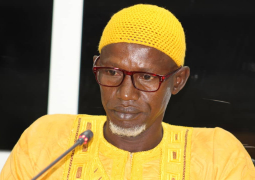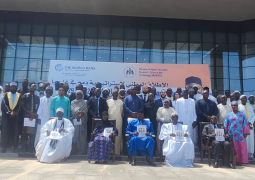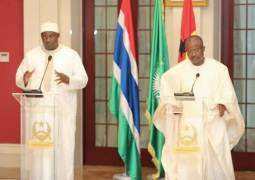Every individual in The Gambia has the right to seek, receive and impart information and ideas of their choosing without interference from others - be it government, individuals, or organisations.
Freedom of expression is a fundamental human right enshrined in domestic and international law, and it is a fundamental right covered in detail in Article 10 of The Universal Declaration of Human Rights.
However, the 22-year-rule of former President Jammeh bypassed these domestic provisions and international instrument, as documented by the TRRC.
"During his reign of terror, former President Yahya Jammeh sought to remain in power by any means possible and viewed the media as a great threat to his self-perpetuating objective," TRRC report states.
"He knew that in the execution of their duties to provide information to the public, the media, which is pivotal for accountability and democracy, could greatly influence public opinion," it added
Thus, in order to avoid the reoccurrence of media terrorisation by the state and encroachment on the right of expression, TRRC recommended that the government "reform the Criminal Code to fully protect media freedom and freedom of expression, in particular by decriminalising sedition and defamation, ensuring that individuals’ reputational interests can only be safeguarded through civil litigation, in conformity with international human rights law.
In response to this recommendation, the government states in its White Paper: "The Government partly accepts the recommendation of the Commission in so far as it concerns reforming the Criminal Code and safeguarding media freedom and freedom of expression; and the decriminalisation of defamation which should be a civil matter between private individuals.
"However, seditious laws are a necessary part of a nation’s security provided they are not misused or abused by governments to curtail media freedom or freedom of speech/expression," government states as justification.
"The government will take necessary steps to providing a clearer definition on what constitutes sedition/sedition intent."
On the same section of "attack on the media" under Jammeh regime in the TRRC report, TRRC further recommended more clearly this time that government should "protect the right to freedom of expression by repealing the Sedition Act and the Official Secrets Act."
However, the government again does not seem to have totally agree with this recommendation, even though it acknowledges this recommendation of the Commission.
Government goes on further to reason that "seditious offences as contained in the Criminal Code and the Official Secrets Act are necessary instruments in safeguarding State secrets and security."
Moreover, the government once again stated that it will take the necessary steps to provide a clearer definition of what constitutes sedition/seditious intent
It added that the Criminal Code amendment process is underway, which will address some of the concerns raised with regard to the Official Secrets Act.
Historically, the sedition law is a colonial relic. They were laws utilised by the British to restraint freedom fighters and nationalist leaders during colonial days, whom they considered stubborn and therefore threats to their colonial administration.
Unfortunately, it is still often used by states, especially in Africa and Asia, against dissenters, human rights activists, Journalists and those critical of the government, including ordinary citizens.
In cognisant of their violative features as far as freedom to express and media are concerned, sedition laws have been repealed in the United Kingdom itself, which introduced such laws in many country including The Gambia and many other countries. Many other countries have also repealed such laws.
Global rights organisations such as the Human Rights Watch still advocate for the abolition of such laws.





